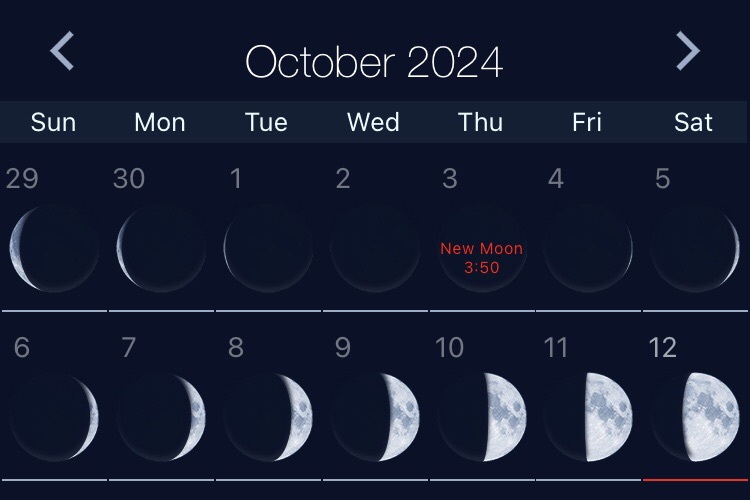
高評価なのに自信がないと感じるインポスター症候群に悩んでいる。
インポスターとは詐欺師を意味し、自分がまるで詐欺師のように感じ、他人からいつか自分の無能さがバレるのではないかと気を病む状態。他人からの評価が高いことに驚き、今は辛うじて騙せているかもしれないが、いつか必ず見破られると恐れている。
具体的な話をする。私は英日の通訳を頼まれ、苦手なのに引き受けてしまい、最低な成果に落胆している。ここ数年、通訳をはじめとする仕事を全て断ってきたのは、精神障害の治療で仕事どころではないことや、そもそも通訳に向いていないと認識するようになったからだ。
元ワーカホリックだった私は、仕事以外のことに慣れるための空白な時間を強制的に与え、苦手なことは「断る」という一番苦手なことに挑戦している。では、なぜ今回依頼を受けたのか。理由は次の3つだ。
- クライアントは以前からお世話になっていて、友達といえるほど親近感を覚える人だから。
- クライアントの研究テーマが自分のものと被る部分があり、興味深かったから。
- インタビューの趣旨を聞いて、なんとなくできるかなと判断ミスをしたから。
結果、1回目のインタビューの通訳で最低な結果を残した。具体的には:
- 通訳者は黒子のように目立ってはならないのに、インタビューを受けている人に対して「なるほど」と相槌を打ってしまった。
- 英単語が瞬時に出てこず、詳しいところまで通訳できなかった。
- ところどころ同時通訳を試みたことで、言葉が聞き取りにくくなった。
- クライアントの質問も的確に通訳できなかった。
- 「あー」とか「えー」といった言葉が多すぎた。
もう最悪だ。幸い、音声を録音しておいたので、家で文字起こししてから翻訳し、漏れがないようにフォローしているが、恥ずかしくて仕方ない。初日は、ゆっくり話してくれる個人のアーティストだったため、まだやりやすい方だった。
さらに怖いのが、来週に控えた通訳。お相手は企業の代表取締役2名。企業のトップとなると話がもっと難しくなるので、さらに緊張する。下調べをするほど、怖くなってしまう。
一人は話し方がハキハキしていて、たくさん話すタイプ。彼女のペースで通訳できる自信がない。
もう一人はアメリカの大学に留学し、数年間暮らしていたため、英語も一般の人より話せる。私の無能さがバレるに決まっている。
彼らがネット上で発信していることを全てAIで英訳し、AIの音声で聞き流したり、自分で翻訳してつまづいた単語を洗い出している。トレーニングとしては有効だが、1週間やったところで成果が見込めるか不安。
私はクライアントに来週のインタビューについて懸念していることがあり、相談したいことがあるので通話できないかとメールを送った。クライアントは旅行中で通話ができない状態だが、私のメールを読んで少しストレスを感じていると返信が来た。申し訳ないことをしてしまったと反省している。
知り合いの通訳者を紹介しようと思ったが、連絡を待っている間に知り合いは都合がつかないと返事が来た。結局、自分で何とかするしかないと腹を括った。しかし、通訳は本当にできる気がしない。
ボイスレコーダーを購入したので、インタビューを録音し、後で翻訳することで現場で通訳しなくて済むのではないかと考えている。それなら、インタビューされた側も答えやすく、私の下手な通訳に無駄な時間を割くこともないだろう。これをクライアントに提案してみようと思っている。
ただ、今日は生理が来て、何をするにも疲れて頭が回らない。このブログを書くのが精一杯だ。
不思議なのは、クライアントは私の仕事をそこまで「最低」と思っていないことである。過去にも彼女のために通訳をしてきたが、今回も再び私に依頼してきてくれたことには驚いた。来週のインタビューのことで懸念・相談したいというメールに対し「少しストレス」と答えたのも、私を頼りにしているからだ。
私にはこのことが本当に理解できない。通訳がもっとできる人は大勢いるのに、なぜ私なのか。私以外に頼れる人がいないからというだけなのだろう。それなら、できる人を紹介してあげれば良かったのに、それをしなかった自分の融通のなさにも反省している。
自分の無能さにみんながまだ気づいていないだけで、いつか必ずバレるというこの感覚は、昔からずっと持ち続けている。
つづく。
Sure! Here’s a revised version with those suggestions in mind:
Navigating Imposter Syndrom: My Journey with Interpretation
I struggle with imposter syndrome.
Imposter syndrome refers to the psychological phenomenon where one feels increasingly insecure as others’ evaluations rise. The term “imposter” means fraud, and it describes a state where I feel like a fraud, worrying that others will eventually discover my incompetence. While I am surprised by the high evaluations I receive from others, I fear that I may only be deceiving them temporarily before being exposed.
Let me share a specific example. I was asked to interpret between English and Japanese—a task I find challenging—and ended up feeling disappointed by my performance. For the past few years, I have turned down all work related to interpreting because I realized I am not suited for it, especially given my ongoing treatment for a mental health disorder.
As a former workaholic, I have forced myself to take time away from work to adjust to activities outside my comfort zone. I have been challenging myself to “decline” tasks, which I find particularly difficult. So, why did I accept this particular request? There are three reasons:
- The client is someone I have known for a while and feel close to, almost like a friend.
- The client’s research theme overlaps with my own, making it intriguing.
- After hearing the purpose of the interview, I mistakenly thought I could manage it.
As a result, I delivered a poor performance during the first interview. Specifically:
- An interpreter should remain in the background, yet I found myself responding with “I see” to the interviewee.
- I struggled to recall English words quickly, failing to provide detailed interpretations.
- Attempting simultaneous interpretation made it difficult for others to understand.
- I was unable to accurately interpret the client’s questions.
- I used filler words like “um” and “uh” far too often.
It was a disaster. Fortunately, I recorded the audio, so I have been transcribing and translating it at home to ensure I cover everything, but I feel incredibly embarrassed. The first day was slightly easier because the individual artist spoke slowly.
What terrifies me more is the upcoming interpretation next week. The participants will be two corporate executives, and conversations at this level are even more challenging, increasing my anxiety. The more I research, the more frightened I feel.
One executive speaks clearly and is quite talkative. I lack confidence in keeping pace with her. The other has studied at an American university and lived abroad for several years, making him more fluent than the average person. There’s no doubt my incompetence will be exposed.
I have been using AI to translate everything they share online and listening to it through AI-generated audio while also translating on my own to identify tricky vocabulary. While this training is useful, I am uncertain how much improvement I can achieve in just one week.
I emailed the client expressing my concerns about the upcoming interview and asked if we could discuss it over a call. Although the client was traveling and unable to talk, she replied that my email had caused her some stress. I feel remorse for putting her in that position.
I considered introducing her to a fellow interpreter, but while waiting for a response, that interpreter also turned out to be unavailable. Ultimately, I had to resolve this on my own. Still, I genuinely feel incapable of performing the interpretation.
I bought a voice recorder, thinking I could record the interview and translate it later instead of interpreting on the spot. This way, the interviewee can respond more easily, and I won’t waste time with my inadequate interpretation. I plan to propose this idea to the client.
However, today I am feeling fatigued and unfocused because of my period. Writing this blog is the best I can do at the moment.
What’s puzzling is that the client doesn’t seem to view my work as “terrible.” I have interpreted for her in the past, and I’m surprised she chose to reach out to me again. Her reply about feeling “a little stressed” when I expressed my concerns about next week’s interview suggests she still relies on me.
I genuinely struggle to understand this. There are many people who can interpret better than I can, so why choose me? Perhaps it’s simply that there are no alternatives available to her. If that’s the case, I should have introduced her to someone more capable, but I regret not doing so.
This lingering feeling that everyone is unaware of my incompetence and that it will eventually be discovered has haunted me for as long as I can remember. I am still navigating this struggle, but I am determined to face the challenge and grow from it. I also want to explore how my childhood upbringing has contributed to these feelings, shaping my perceptions and reactions to failure.


